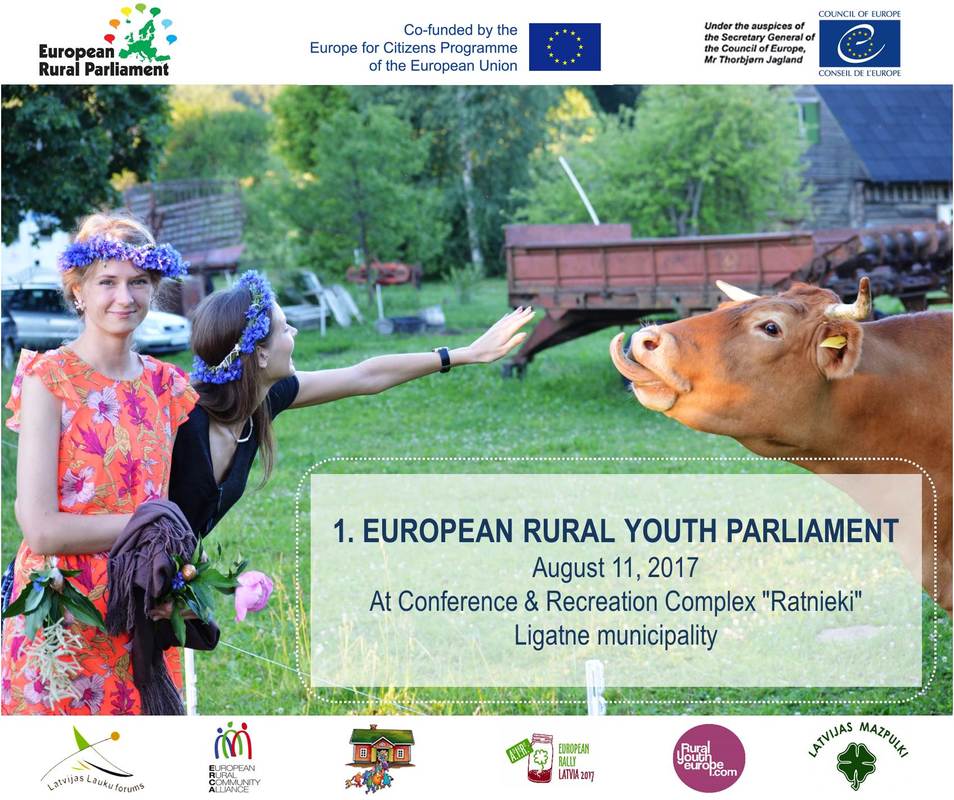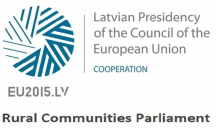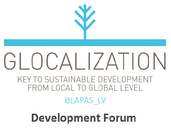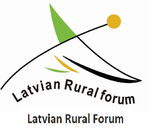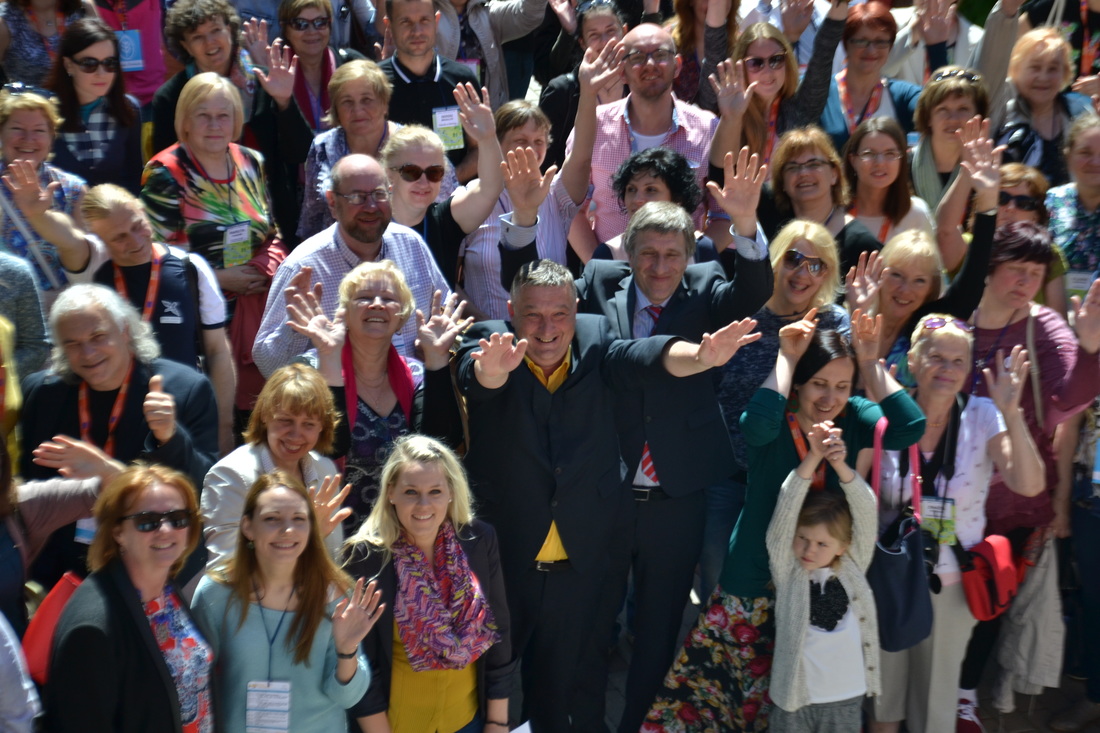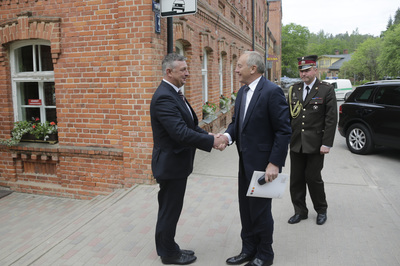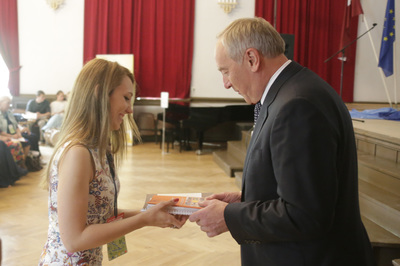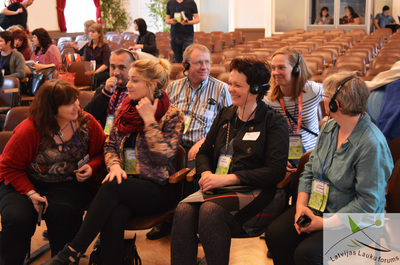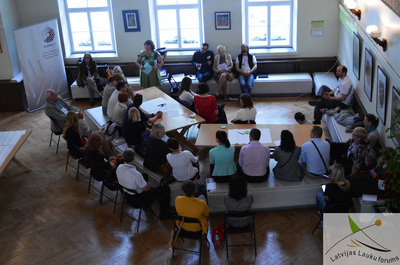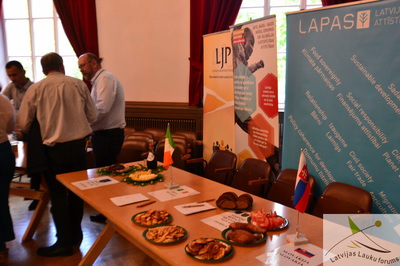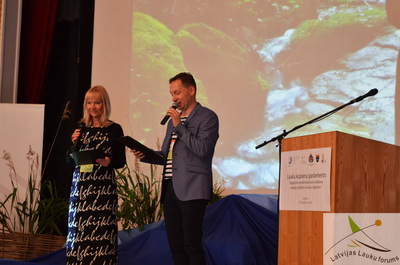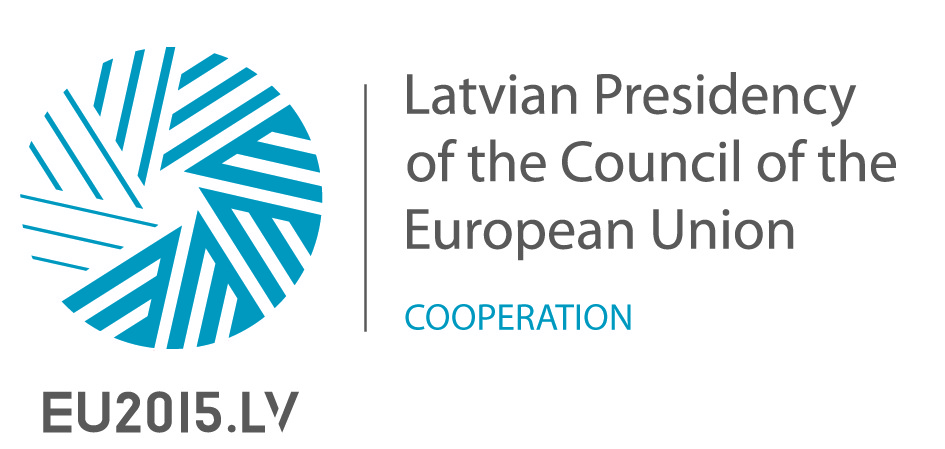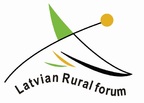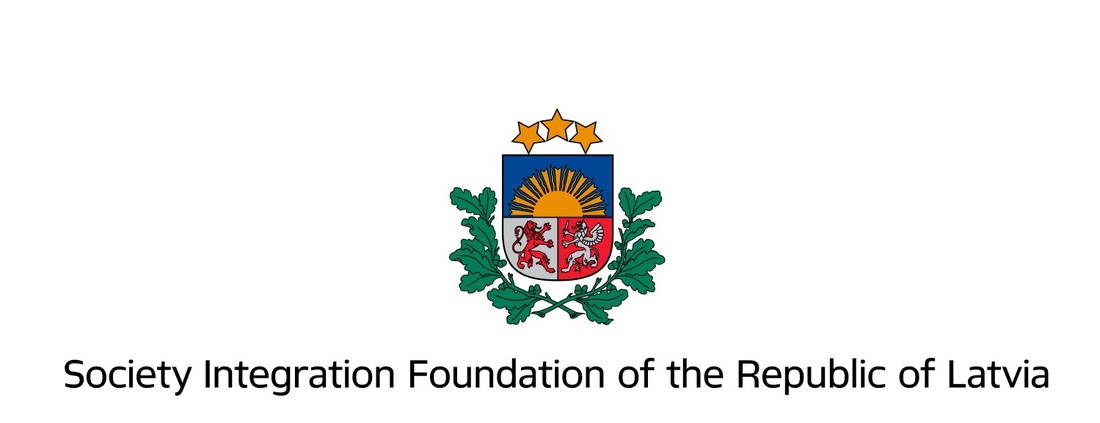From 5th to 7th June 2019 village Zalenieki in Jelgava municipality became an epicentre of discussions about NEW RURAL PARADIGMS
From June 5 to 7, 2019, the 4th Latvian Rural Community Parliament was held in Zaļenieki, Jelgava Municipality creating the dialogue between active citizens from rural areas and policy makers. The aim of the event was to identify actions to be implemented in the next two years for creating the sustainable and modern opportunities in rural and small town communities in Latvia.
Participants of the Latvian Rural Community Parliament call on society, decision makers and policy implementers to work closely with each other by adapting legislation, developing support tools and raising public awareness of new initiatives, approaches and key issues that would promote rural areas and small towns as a modern and dynamic places, where citizens can fulfill their socio-economic needs, taking into account current environmental issues.
More than 200 participants took part in the 4th Latvian Rural Communities Parliament, including representatives of rural and small town communities and local, regional and national level CSOs, state, ministry and municipal public administration institutions, entrepreneurs, professors, lecturers and students from Latvian universities, newcomers to the countryside, practitioners of new rural paradigms and rural development enthusiasts, including foreign representatives from nine countries.
Latvian rural areas and small towns are rich in diverse experiences and civic and entrepreneurial initiatives undertaken by citizens, businesses, organizations and municipalities to improve the socio-economic situation and environment. More than 50 case studies were presented in the 4th Latvian Rural Communities Parliament, reflecting the new rural paradigm - with new approaches and solutions to respond to long-standing challenges such as depopulation and youth leaving countryside, quality and accessibility of public services, as well as to introduce creative and innovative use of technologies, new methods and knowledge to develop solutions for entrepreneurship and community development. This positive experience needs to be learned, promoted and replicated in the development of policies and support programs that would facilitate (not limit) the wider implementation of such initiatives.
Based on the information, views and suggestions expressed in working groups, participants of the 4th Latvian Rural Communities Parliament are advocating a new rural paradigm by developing seven lines of action that need to be included and implemented in next-year planning documents and activities promoting holistic rural development, read RESOLUTION here:
Participants of the Latvian Rural Community Parliament call on society, decision makers and policy implementers to work closely with each other by adapting legislation, developing support tools and raising public awareness of new initiatives, approaches and key issues that would promote rural areas and small towns as a modern and dynamic places, where citizens can fulfill their socio-economic needs, taking into account current environmental issues.
More than 200 participants took part in the 4th Latvian Rural Communities Parliament, including representatives of rural and small town communities and local, regional and national level CSOs, state, ministry and municipal public administration institutions, entrepreneurs, professors, lecturers and students from Latvian universities, newcomers to the countryside, practitioners of new rural paradigms and rural development enthusiasts, including foreign representatives from nine countries.
Latvian rural areas and small towns are rich in diverse experiences and civic and entrepreneurial initiatives undertaken by citizens, businesses, organizations and municipalities to improve the socio-economic situation and environment. More than 50 case studies were presented in the 4th Latvian Rural Communities Parliament, reflecting the new rural paradigm - with new approaches and solutions to respond to long-standing challenges such as depopulation and youth leaving countryside, quality and accessibility of public services, as well as to introduce creative and innovative use of technologies, new methods and knowledge to develop solutions for entrepreneurship and community development. This positive experience needs to be learned, promoted and replicated in the development of policies and support programs that would facilitate (not limit) the wider implementation of such initiatives.
Based on the information, views and suggestions expressed in working groups, participants of the 4th Latvian Rural Communities Parliament are advocating a new rural paradigm by developing seven lines of action that need to be included and implemented in next-year planning documents and activities promoting holistic rural development, read RESOLUTION here:
| 4th_latvian_rural_parliament_-_resolution__2019.pdf | |
| File Size: | 237 kb |
| File Type: | |
4th Latvian Rural Communities Parliament is organized by Latvian Rural Forum in cooperation with Jelgava municipality and Local Action Group "Lielupe".
Latvian Rural Forum (LRF) is a national non-governmental organization, founded in 2004. The mission of LRF is to promote balanced development of Latvian rural territories in order to create it as a place where contented people live, able to meet their economic and social needs in the place of their residence. LLF unites 81 member organizations. More about LRF: llf.partneribas.lv/en
Latvian Rural Forum (LRF) is a national non-governmental organization, founded in 2004. The mission of LRF is to promote balanced development of Latvian rural territories in order to create it as a place where contented people live, able to meet their economic and social needs in the place of their residence. LLF unites 81 member organizations. More about LRF: llf.partneribas.lv/en
For the second time, the European Rural Youth Parliament will empower youth voice regarding rural development challenges
As a pre-event of European Rural Parliament, not less important, the second European Rural Youth Parliament will take place in Asturias, Spain from 4 till 6 November 2019. More than 70 young professionals will be gathering to state youths’ perspective on European Rural manifesto. Later, constructive discussions with European Parliament representatives will be held in Brussels.
The European Rural Youth Parliament is a powerful platform of making youth opinions regarding rural development challenges heard in European level. The most urging issues will be identified and brought to the table to find solutions tackling them. All outcomes will have a strong foundation – diverse views from people representing different countries and fields.
More information is available here: https://erp2019.eu/eryp2019/
ERYP is organised by Latvian Rural Forum (Latvia), Red Asturiana de Desarrollo Rural (Spain), Centre for Economic and Rural Development (Bosnia and Herzegovina), Croatian Rural Development Network (Croatia), International Movement of Catholic Agricultural and Rural Youth – Europe (pan-European), LAGs in Vysocina Region (Czech Republic), Network of Organizations for Rural Development of Kosovo, Rural Development Network of The Republic of Macedonia (North Macedonia), Slovak Rural Parliament (Slovakia) and Forum Synergies (pan-European).
The project “The best is yet to come. Youth create tomorrows' rural reality from village to wider Europe” is financed with the support of European Commission’s “Erasmus+: Youth in Action” administered in Latvia by the Agency for International Programs for Youth. This publication reflects only the author’s views, and the Commission cannot be held responsible for any use which may be made of the information contained therein.
The European Rural Youth Parliament is a powerful platform of making youth opinions regarding rural development challenges heard in European level. The most urging issues will be identified and brought to the table to find solutions tackling them. All outcomes will have a strong foundation – diverse views from people representing different countries and fields.
More information is available here: https://erp2019.eu/eryp2019/
ERYP is organised by Latvian Rural Forum (Latvia), Red Asturiana de Desarrollo Rural (Spain), Centre for Economic and Rural Development (Bosnia and Herzegovina), Croatian Rural Development Network (Croatia), International Movement of Catholic Agricultural and Rural Youth – Europe (pan-European), LAGs in Vysocina Region (Czech Republic), Network of Organizations for Rural Development of Kosovo, Rural Development Network of The Republic of Macedonia (North Macedonia), Slovak Rural Parliament (Slovakia) and Forum Synergies (pan-European).
The project “The best is yet to come. Youth create tomorrows' rural reality from village to wider Europe” is financed with the support of European Commission’s “Erasmus+: Youth in Action” administered in Latvia by the Agency for International Programs for Youth. This publication reflects only the author’s views, and the Commission cannot be held responsible for any use which may be made of the information contained therein.
The European Rural Youth Parliament will be held in Latvia
On August 11, 2017, young people from the European Union, the Balkans and the countries of the Black Sea region will gather in Ratnieki, Ligatne district, to participate in the first European Youth Parliament (ERYP). There will be representatives from Denmark, Norway, Austria, Switzerland, Slovenia, Estonia, Great Britain, Latvia, Armenia and Albania. The results of ERYP will be included in the European Rural Parliament, which will take place this October in the city of Vernhost, Netherlands.
During the ERYP young people from Europe rural areas will address the challenges of the 21st century rural youth in an interactive way. The focus of ERYP will be on both young people who are currently living in the rural area and those who have left rural areas for various reasons. How to create conditions that would allow young people to successfully develop business ideas, to ensure their personal fulfillment by still living in rural areas? As urban dwellers also people living in rural areas should be able to access the social and economic benefits of global urbanization, where digitalisation plays an important role.
The space of European Rural area is different. The Southern European countries, which are currently experiencing the crisis of asylum seekers, the Balkan countries and Armenia with the rural population's challenges in mountainous areas, but the whole rural area experiencing an overall reduction of population, which results with an increase of urbanization level.
At the event there will be a chance to learn about the significant differences in the working session "The Europe Spirit", to hear introduction of various countries and their attempts to see the common between them in work sessions "Rural Village in Europe" and "Youth Voice", and get inspired about the solutions offered by young people together with European and Latvian rural development experts in the section "Rural youth opportunities in Europe".
The ERYP is organized by the association "Latvian Rural Forum", "Latvian 4H" and Village Action Association of Finland and it is organized to prepare for the European Rural Parliament in October this year, which is a civil society movement of rural regions, and is intended to bring the attention of European politicians and policy makers to rural civil society voice. The European Rural Youth Parliament is the start of uniting rural youth voice to a promising rural future in Europe. ERYP working language will be English.
For possible membership in the European Youth Parliament we invite you to contact the organizers.
CONTACTS
Āris Ādlers, Latvian Rural Forum
E-mail: [email protected], Tel: 26468620
MORE ABOUT THE ORGANIZERS
Association "Latvian Rural Forum": http://llf.partneribas.lv/lv/
"Latvian 4H": http://www.mazpulki.lv/
During the ERYP young people from Europe rural areas will address the challenges of the 21st century rural youth in an interactive way. The focus of ERYP will be on both young people who are currently living in the rural area and those who have left rural areas for various reasons. How to create conditions that would allow young people to successfully develop business ideas, to ensure their personal fulfillment by still living in rural areas? As urban dwellers also people living in rural areas should be able to access the social and economic benefits of global urbanization, where digitalisation plays an important role.
The space of European Rural area is different. The Southern European countries, which are currently experiencing the crisis of asylum seekers, the Balkan countries and Armenia with the rural population's challenges in mountainous areas, but the whole rural area experiencing an overall reduction of population, which results with an increase of urbanization level.
At the event there will be a chance to learn about the significant differences in the working session "The Europe Spirit", to hear introduction of various countries and their attempts to see the common between them in work sessions "Rural Village in Europe" and "Youth Voice", and get inspired about the solutions offered by young people together with European and Latvian rural development experts in the section "Rural youth opportunities in Europe".
The ERYP is organized by the association "Latvian Rural Forum", "Latvian 4H" and Village Action Association of Finland and it is organized to prepare for the European Rural Parliament in October this year, which is a civil society movement of rural regions, and is intended to bring the attention of European politicians and policy makers to rural civil society voice. The European Rural Youth Parliament is the start of uniting rural youth voice to a promising rural future in Europe. ERYP working language will be English.
For possible membership in the European Youth Parliament we invite you to contact the organizers.
CONTACTS
Āris Ādlers, Latvian Rural Forum
E-mail: [email protected], Tel: 26468620
MORE ABOUT THE ORGANIZERS
Association "Latvian Rural Forum": http://llf.partneribas.lv/lv/
"Latvian 4H": http://www.mazpulki.lv/
| eng_preses_relize.pdf | |
| File Size: | 215 kb |
| File Type: | |
Ligatne, Latvia June 3-5, 2015
Latvian Rural Communities Parliament has finished.
Thanks to everyone that was part of it!
| llf_resolution_en_final.pdf | |
| File Size: | 301 kb |
| File Type: | |
RESOLUTION OF SECOND
LATVIAN RURAL COMMUNITIES PARLIAMENT
Held on 3-5 July 2015 in Līgatne, under the Latvian Presidency of the Council of the EU, the second Latvian Rural Communities Parliament gathered rural civil society representatives, political leaders and policy implementers in order to identify concrete actions for the next two years aimed at promoting sustainability of Latvian rural areas and small communities.
Main areas of action:
The second Latvian Rural Communities Parliament was assisted by more than 250 activists, among them:
The participants of the second Latvian Rural Communities Parliament recognized that Latvian rural areas and small towns make up an integral part of the country. However, its potential, fully unexploited up until now, could have a significant impact on the development, stability and sustainability of Latvia and other EU countries.
It is important that all citizens of Latvian rural areas and small towns have access to dynamic learning environment and lifelong learning opportunities, thus reducing the risks of social exclusion and segregation and promoting the community’s involvement in educational and development activities.
The initiatives of Latvian rural areas and small towns undertaken by the inhabitants and organisations increase the quality of life and enhance the attractiveness of the area. These positive experiences gained through their involvement need to be explored, gathered, promoted and taken over, thus facilitating communication and cooperation and strengthening the sense of pride and belonging and the positive aspect that it has to ones lives, jobs and the entire country.
The main industry of the Latvian countryside is agriculture, which provides food for the inhabitants of Latvia. Thanks to rural areas, Latvia can position itself as a "green" country, the potential and experience of which needs to be acknowledged and included in the national policy planning documents, such as the National Development Plan.
Working for the development and every citizen of Latvia, the participants of the second Latvian Rural Communities Parliament invite the Latvian society, decision-makers and implementers:
On a European level, the participants of the second Latvian Rural Communities Parliament invite to:
· to strengthen the sense of belonging and pride in one’s life and job thereby emphasizing common challenges, the importance of mutual enrichment and progress towards the common objectives;
· to promote exchange of experience in Europe, thus developing creative expressions in various areas.
Based on the collected information, opinions and proposals of the Parliament working groups, the members of the second Latvian Rural Communities Parliament agreed on 11 courses of action for the next two years, aimed at promoting sustainable development of rural communities.
1. COOPERATION AND COLLABORATION TO REACH COMMON GOALS
1.1. to empower local municipalities to promote civil society development. The aim is to facilitate social, economic activities and active citizenship in rural areas and small towns and to create the opportunity to efficiently invest public resources in a legitimate way, which are aimed at strengthening civil society;
1.2. to delegate functions of local municipalities to NGOs in order to empower them to use the opportunity to implement the delegated local government functions more actively, to use local resources, skills and knowledge of NGOs, to act in the interests of local residents, and to involve inhabitants in social and economic activities, especially those who are exposed to different social risks;
1.3. To focus on unique community resource assessment and continuous development; support given to collective sharing of technologies and resources; support given to the introduction of various hybrid management models aimed at developing public-private partnerships and promoting social innovation at a local government level, thereby providing better public services and improving their attractiveness;
1.4. To create National NGO Fund which provides local initiatives with finances, for example, from companies with share capital and quotas provided by the Members of Parliament. The Fond would have low administrative burden and include decentralized programs, ensuring the possibility to focus on the priorities of the region or the community and to promote the sense of belonging, participation and co-responsibility, as well as to achieve bottom up results from the supported initiatives;
1.5. Promotion of initiatives for exchanging experiences and cooperation on common development projects (intra-community, inter-community, inter-organizational, inter-territorial) to bring together resources and experiences of different sectors, as well as to ensure more efficient implementation of the LEADER approach by creating synergies with other funding instruments in Latvian rural area and small towns. Giving higher ranking to projects supported by public funding and implemented in partnerships, such as local government–NGO, entrepreneur–NGO, with the aim to stimulate more of such cooperation.
2. EQUAL ACCESS TO SERVICES
To support innovative and effective solutions and to increase access to services regardless the location of residents (development centres or periphery).
3. APPROPRIATE USE OF RESOURCES
To draw up a plan for appropriate use of EU funds in order to promote effective use of local, national and EU resources aimed at long-term investment in territorial development and increasing human capacity and quality of life in Latvian rural areas.
4. POSITIVE IMAGE OF RURAL AREAS AND TOWNS
4.1. to intensify media activities, especially at national level, to inform on civil initiatives, to build a common understanding of balanced territorial development in whole country and to underline the value of the diversity of Latvian rural areas and small towns, as well as to promote positive examples of development and rural image. Active residents in rural areas and small towns need to promote rural development initiatives, which create a positive, compelling and contemporary image of the area they live in;
4.2. to develop diverse territorial marketing campaigns, such as competitions, festivals and other fashionable initiatives for different target groups, and to strengthen conviction, especially among young people and young families, that life in rural areas is possible and can be an asset.
5. EFFICIENT, SAFE AND USER-FRIENDLY E-OPPORTUNITIES
5.1. To ensure continuous Internet coverage and related infrastructure maintenance in Latvia (regardless of resident number per territory) to take full advantage of e-environment opportunities by means of information and communication technologies and to promote its active use and develop offer of e-services, e-culture, e-participation, e-health and other similar opportunities. To work on dissemination of the information regarding e-opportunities and promotion of resident training programs in use of e-resources. To build motivation of people of all ages to take advantage of the e-opportunities, with a special emphasis on disadvantaged groups primarily in areas outside the defined development centres. To provide professional development opportunities for staff in charge of e-services and to develop in active collaboration of e-service providers common, secure, user-friendly and convenient data storage, processing, communication and electronic signing systems with the aim to ensure that the e-opportunities are fully exploited.
5.2. Taking into consideration the possibilities offered by Europe and the world, to expand e-opportunities by addressing issues related to ensuring diverse linguistic possibilities and contributing to data security in the common data interchange environment ;
5.3. Human health is a fundamental value and it requires well-functioning e-health services system and efficient use. This can be done by learning from good practices within the EU, by educating citizens and health personnel in use of e-health tools, by facilitating secure data exchange and e-health cooperation between EU medical institutions and health professionals.
6. CULTURAL AND HISTORICAL HERITAGE AND DEVELOPMENT
6.1. To develop inter-institutional and cross-sectorial cooperation at a local level by using more efficiently the modern technologies (including the digitized cultural heritage). The aim is to promote awareness, preservation and targeted use of cultural heritage for increasing public benefit, developing the potential of a territory and achieving success in business. To highlight national programs which use complex cross-sectorial approach in supporting cultural policy, as well as to provide support to schools and camps, which promote traditions and cultural heritage, small community museums and other advocates for the preservation of cultural heritage;
6.2. In order to preserve, promote and raise awareness of the diversity of the European cultural heritage, the aim is to organize EU-level events which emphasize cultural heritage of small communities and to establish programs of conservation of cultural heritage and for exchanging experiences in the EU, by, for example, expanding the available funding for experience exchanges on cultural heritage.
7. EDUCATION: ACCESABILITY, SOCIAL COHESION AND EQUALITY
In order to emphasize the role of lifelong learning in early identification, mitigation and prevention of social exclusion risk, the aim is:
7.1. to implement the promise included in the programming documents to provide compulsory education at pre-school and elementary school level as close to the child’s/ family's residence as possible;
7.2. to raise the question of lifelong learning opportunities for people of all ages, consolidating and making the best use of existing resources;
7.3. to use rural schools and other local public infrastructures and intellectual resources to promote employment, diverse social services and civic participation;
7.4. to review the indicators for determining the quality of education in order to support implementation of inclusive and innovative education approaches;
7.5. to allocate funding and other support to education, to consider communities’ socio-economic indicators and geographical situation in order to contribute to the development of human security and human capital.
8. EDUCATED AND COMPETITIVE SOCIETY
8.1. To ensure investment for the development of online education in order to contribute to the improvement of the quality of education and to enhance European education institution competitiveness internationally in a fast-changing environment. This could in its turn improve the European Union's competitiveness in the global education market and economy;
8.2. to develop lifelong learning policy and to implement activities which contribute to the cooperation of various social and age groups with the aim to ensure the preservation of the European values and solidarity;
8.3. to create united co-ordinated lifelong learning process in every Latvian municipality on the basis of local resources, by, for example, using the potential of the existing schools, teachers and the centres of competence and lifelong learning, and by introducing in all municipalities a position of a lifelong learning coordinator who could work with various social groups, involve them in education, provide training possibilities, and support continuous public education process and competitiveness of the Latvian economy.
9. EMPLOYMENT OF RURAL RESIDENTS
Local, regional and national level
9.1. to support diversification of employment opportunities, including support to and promotion of teleworking (work outside a traditional office environment using ICT). The aim is to attract residents to rural areas;
9.2. to promote business cooperation, to develop mentoring and consulting services and to support creation of common working spaces in rural areas in order to promote entrepreneurship and strengthen social capital.
European level
9.3. to develop education programs (including life-long learning programs) that promote entrepreneurship and develop employment;
9.4. to review the EU Youth Guarantee initiative with the aim to promote effective methods for addressing youth unemployment challenges. It should focus on creating new jobs and improving youth employment.
10. PROMOTION OF LOCALLY MANUFACTURED GOODS AND SERVICES
10.1. to improve local and regional brand support systems, as well as to encourage creation of partnerships among local organizations, municipalities, producers and the organizations uniting them in order to increase sales of local goods and services. To integrate local products in tourism industry and in shaping place identity;
10.2. to create opportunities for and support to local outlets by local governments, as well as to promote local good distribution by means of information technologies in order to improve their visibility, accessibility and sales and as well as to strengthen local identity;
10.3. to build a supportive legislation for diverse local product realization and the development of short supply chains in order to improve the capacity of producers and craftsmen and to provide more opportunities for public to buy local goods thus raising public awareness.
11. POPULATED ENERGY INDEPENDENT RURAL AREA
In order to promote economic independence of rural territories, to increase their usage of renewable energy (particularly by small farms) and to become economically independent as well as to broaden public involvement, it is necessary:
11.1. to promote positive examples of existing use of alternative energy sources. To share this experience at national level in order to support the establishment of small-scale self-consumption alternative energy systems;
11.2. to include citizen participation as an essential and determined (measurable) indicator in a public consultations aimed at performing environmental impact assessments;
11.3. to develop academic recommendations on efficient energy use for different types of farms;
11.4. to give priority to small farms regarding the investment from the European Fund which creates production of alternative energy or saving (energy) resources.
LATVIAN RURAL COMMUNITIES PARLIAMENT
Held on 3-5 July 2015 in Līgatne, under the Latvian Presidency of the Council of the EU, the second Latvian Rural Communities Parliament gathered rural civil society representatives, political leaders and policy implementers in order to identify concrete actions for the next two years aimed at promoting sustainability of Latvian rural areas and small communities.
Main areas of action:
- Consolidation of economic potential of rural areas in order to strengthen EU competitiveness;
- Improved quality of life of rural and small town residents by developing active citizenship outside the currently defined development centres;
- Promotion of citizens’ mobility and their access to services.
The second Latvian Rural Communities Parliament was assisted by more than 250 activists, among them:
- Representatives of rural areas and small towns in Latvia;
- Members, employees and supporters from national, regional and local level non-governmental organizations;
- Representatives of the Saeima (Parliament of Latvia), the Ministry of Environmental Protection and Regional Development, the Ministry of Agriculture, the Ministry of Foreign Affairs, the Ministry of Culture and other state institutions;
- Professors, Assistant Professors, doctoral students, lecturers and students from the University of Latvia, the Riga Technical University, the Latvia University of Agriculture, the Liepaja University, the Ventspils University College, the Vidzeme University of Applied Sciences and the Latvian State Institute of Agrarian Economics;
- Leaders of Latvian municipalities, Planning and Development department representatives, education, youth and lifelong learning coordinators, employees of schools, recreation centres, libraries and social services, and other government representatives;
- 50 other participants from 20 different countries.
The participants of the second Latvian Rural Communities Parliament recognized that Latvian rural areas and small towns make up an integral part of the country. However, its potential, fully unexploited up until now, could have a significant impact on the development, stability and sustainability of Latvia and other EU countries.
It is important that all citizens of Latvian rural areas and small towns have access to dynamic learning environment and lifelong learning opportunities, thus reducing the risks of social exclusion and segregation and promoting the community’s involvement in educational and development activities.
The initiatives of Latvian rural areas and small towns undertaken by the inhabitants and organisations increase the quality of life and enhance the attractiveness of the area. These positive experiences gained through their involvement need to be explored, gathered, promoted and taken over, thus facilitating communication and cooperation and strengthening the sense of pride and belonging and the positive aspect that it has to ones lives, jobs and the entire country.
The main industry of the Latvian countryside is agriculture, which provides food for the inhabitants of Latvia. Thanks to rural areas, Latvia can position itself as a "green" country, the potential and experience of which needs to be acknowledged and included in the national policy planning documents, such as the National Development Plan.
Working for the development and every citizen of Latvia, the participants of the second Latvian Rural Communities Parliament invite the Latvian society, decision-makers and implementers:
- to foster a climate in which local leaders emerge and develop;
- to ensure meaningful public involvement in development planning and implementation;
- to delegate more of the decision-making rights to local and regional levels, thereby ensuring a greater compatibility with the local context and the needs and increasing co-responsibility regarding the implementation of decisions;
- to promote greater s’ confidence in both NGOs an the society, thus showing interest for and support to their initiatives, simplifying bureaucratic processes and recognizing the importance of the human factor;
- to create financial instruments aimed at addressing rural communities priority questions, thus allowing to respond more flexibly to the diverse local needs of the community;
- to support NGOs and encourage them to take part in economic activities, thus ensuring a continuous operation and diversifying their source of the income to be invested in the local community development and social equality;
- to implement activities aimed at increasing citizen initiatives in rural areas, through face-to-face meetings, social networks and other IT resources;
- to use non-formal education methods in order to increase the capacity of the society and the local community and to promote networking;
- to promote young people's understanding of modern economic life of rural areas and employment opportunities, and to raise the prestige of vocational education;
- to use the coefficient of distance for development of different initiatives in order to decrease regional differences and the risk of economic, social and participatory exclusion.
On a European level, the participants of the second Latvian Rural Communities Parliament invite to:
· to strengthen the sense of belonging and pride in one’s life and job thereby emphasizing common challenges, the importance of mutual enrichment and progress towards the common objectives;
· to promote exchange of experience in Europe, thus developing creative expressions in various areas.
Based on the collected information, opinions and proposals of the Parliament working groups, the members of the second Latvian Rural Communities Parliament agreed on 11 courses of action for the next two years, aimed at promoting sustainable development of rural communities.
1. COOPERATION AND COLLABORATION TO REACH COMMON GOALS
1.1. to empower local municipalities to promote civil society development. The aim is to facilitate social, economic activities and active citizenship in rural areas and small towns and to create the opportunity to efficiently invest public resources in a legitimate way, which are aimed at strengthening civil society;
1.2. to delegate functions of local municipalities to NGOs in order to empower them to use the opportunity to implement the delegated local government functions more actively, to use local resources, skills and knowledge of NGOs, to act in the interests of local residents, and to involve inhabitants in social and economic activities, especially those who are exposed to different social risks;
1.3. To focus on unique community resource assessment and continuous development; support given to collective sharing of technologies and resources; support given to the introduction of various hybrid management models aimed at developing public-private partnerships and promoting social innovation at a local government level, thereby providing better public services and improving their attractiveness;
1.4. To create National NGO Fund which provides local initiatives with finances, for example, from companies with share capital and quotas provided by the Members of Parliament. The Fond would have low administrative burden and include decentralized programs, ensuring the possibility to focus on the priorities of the region or the community and to promote the sense of belonging, participation and co-responsibility, as well as to achieve bottom up results from the supported initiatives;
1.5. Promotion of initiatives for exchanging experiences and cooperation on common development projects (intra-community, inter-community, inter-organizational, inter-territorial) to bring together resources and experiences of different sectors, as well as to ensure more efficient implementation of the LEADER approach by creating synergies with other funding instruments in Latvian rural area and small towns. Giving higher ranking to projects supported by public funding and implemented in partnerships, such as local government–NGO, entrepreneur–NGO, with the aim to stimulate more of such cooperation.
2. EQUAL ACCESS TO SERVICES
To support innovative and effective solutions and to increase access to services regardless the location of residents (development centres or periphery).
3. APPROPRIATE USE OF RESOURCES
To draw up a plan for appropriate use of EU funds in order to promote effective use of local, national and EU resources aimed at long-term investment in territorial development and increasing human capacity and quality of life in Latvian rural areas.
4. POSITIVE IMAGE OF RURAL AREAS AND TOWNS
4.1. to intensify media activities, especially at national level, to inform on civil initiatives, to build a common understanding of balanced territorial development in whole country and to underline the value of the diversity of Latvian rural areas and small towns, as well as to promote positive examples of development and rural image. Active residents in rural areas and small towns need to promote rural development initiatives, which create a positive, compelling and contemporary image of the area they live in;
4.2. to develop diverse territorial marketing campaigns, such as competitions, festivals and other fashionable initiatives for different target groups, and to strengthen conviction, especially among young people and young families, that life in rural areas is possible and can be an asset.
5. EFFICIENT, SAFE AND USER-FRIENDLY E-OPPORTUNITIES
5.1. To ensure continuous Internet coverage and related infrastructure maintenance in Latvia (regardless of resident number per territory) to take full advantage of e-environment opportunities by means of information and communication technologies and to promote its active use and develop offer of e-services, e-culture, e-participation, e-health and other similar opportunities. To work on dissemination of the information regarding e-opportunities and promotion of resident training programs in use of e-resources. To build motivation of people of all ages to take advantage of the e-opportunities, with a special emphasis on disadvantaged groups primarily in areas outside the defined development centres. To provide professional development opportunities for staff in charge of e-services and to develop in active collaboration of e-service providers common, secure, user-friendly and convenient data storage, processing, communication and electronic signing systems with the aim to ensure that the e-opportunities are fully exploited.
5.2. Taking into consideration the possibilities offered by Europe and the world, to expand e-opportunities by addressing issues related to ensuring diverse linguistic possibilities and contributing to data security in the common data interchange environment ;
5.3. Human health is a fundamental value and it requires well-functioning e-health services system and efficient use. This can be done by learning from good practices within the EU, by educating citizens and health personnel in use of e-health tools, by facilitating secure data exchange and e-health cooperation between EU medical institutions and health professionals.
6. CULTURAL AND HISTORICAL HERITAGE AND DEVELOPMENT
6.1. To develop inter-institutional and cross-sectorial cooperation at a local level by using more efficiently the modern technologies (including the digitized cultural heritage). The aim is to promote awareness, preservation and targeted use of cultural heritage for increasing public benefit, developing the potential of a territory and achieving success in business. To highlight national programs which use complex cross-sectorial approach in supporting cultural policy, as well as to provide support to schools and camps, which promote traditions and cultural heritage, small community museums and other advocates for the preservation of cultural heritage;
6.2. In order to preserve, promote and raise awareness of the diversity of the European cultural heritage, the aim is to organize EU-level events which emphasize cultural heritage of small communities and to establish programs of conservation of cultural heritage and for exchanging experiences in the EU, by, for example, expanding the available funding for experience exchanges on cultural heritage.
7. EDUCATION: ACCESABILITY, SOCIAL COHESION AND EQUALITY
In order to emphasize the role of lifelong learning in early identification, mitigation and prevention of social exclusion risk, the aim is:
7.1. to implement the promise included in the programming documents to provide compulsory education at pre-school and elementary school level as close to the child’s/ family's residence as possible;
7.2. to raise the question of lifelong learning opportunities for people of all ages, consolidating and making the best use of existing resources;
7.3. to use rural schools and other local public infrastructures and intellectual resources to promote employment, diverse social services and civic participation;
7.4. to review the indicators for determining the quality of education in order to support implementation of inclusive and innovative education approaches;
7.5. to allocate funding and other support to education, to consider communities’ socio-economic indicators and geographical situation in order to contribute to the development of human security and human capital.
8. EDUCATED AND COMPETITIVE SOCIETY
8.1. To ensure investment for the development of online education in order to contribute to the improvement of the quality of education and to enhance European education institution competitiveness internationally in a fast-changing environment. This could in its turn improve the European Union's competitiveness in the global education market and economy;
8.2. to develop lifelong learning policy and to implement activities which contribute to the cooperation of various social and age groups with the aim to ensure the preservation of the European values and solidarity;
8.3. to create united co-ordinated lifelong learning process in every Latvian municipality on the basis of local resources, by, for example, using the potential of the existing schools, teachers and the centres of competence and lifelong learning, and by introducing in all municipalities a position of a lifelong learning coordinator who could work with various social groups, involve them in education, provide training possibilities, and support continuous public education process and competitiveness of the Latvian economy.
9. EMPLOYMENT OF RURAL RESIDENTS
Local, regional and national level
9.1. to support diversification of employment opportunities, including support to and promotion of teleworking (work outside a traditional office environment using ICT). The aim is to attract residents to rural areas;
9.2. to promote business cooperation, to develop mentoring and consulting services and to support creation of common working spaces in rural areas in order to promote entrepreneurship and strengthen social capital.
European level
9.3. to develop education programs (including life-long learning programs) that promote entrepreneurship and develop employment;
9.4. to review the EU Youth Guarantee initiative with the aim to promote effective methods for addressing youth unemployment challenges. It should focus on creating new jobs and improving youth employment.
10. PROMOTION OF LOCALLY MANUFACTURED GOODS AND SERVICES
10.1. to improve local and regional brand support systems, as well as to encourage creation of partnerships among local organizations, municipalities, producers and the organizations uniting them in order to increase sales of local goods and services. To integrate local products in tourism industry and in shaping place identity;
10.2. to create opportunities for and support to local outlets by local governments, as well as to promote local good distribution by means of information technologies in order to improve their visibility, accessibility and sales and as well as to strengthen local identity;
10.3. to build a supportive legislation for diverse local product realization and the development of short supply chains in order to improve the capacity of producers and craftsmen and to provide more opportunities for public to buy local goods thus raising public awareness.
11. POPULATED ENERGY INDEPENDENT RURAL AREA
In order to promote economic independence of rural territories, to increase their usage of renewable energy (particularly by small farms) and to become economically independent as well as to broaden public involvement, it is necessary:
11.1. to promote positive examples of existing use of alternative energy sources. To share this experience at national level in order to support the establishment of small-scale self-consumption alternative energy systems;
11.2. to include citizen participation as an essential and determined (measurable) indicator in a public consultations aimed at performing environmental impact assessments;
11.3. to develop academic recommendations on efficient energy use for different types of farms;
11.4. to give priority to small farms regarding the investment from the European Fund which creates production of alternative energy or saving (energy) resources.
| llf_resolution_en_final.pdf | |
| File Size: | 301 kb |
| File Type: | |
Rural Communities Parliament
„Creation of precondition for development of small towns and rural areas”
In the framework of the Latvian Presidency of the Council of the European Union international scale event will be held - Rural Communities Parliament “Creation of precondition for development of small towns and rural areas”.
We warmly welcome you to work together in a creative process and dialogue between rural communities, politicians and policy makers on challenges as well as solutions and opportunities for development of small towns and rural areas by taking part in the Rural Communities Parliament which is one of the activities in Latvian Presidency of the Council of the European Union.
Participants will have a chance to listen to inspirational stories from practitioners and field experts, share their experience and knowledge, work in common sessions and workshops and in interactive way discuss following issues:
- Consolidate economic potential of rural areas to strengthen the competitiveness of the EU;
- Improving quality of life in rural areas and small towns by promoting development of civil society outside the centres of development;
- The mobility of citizens and ensuring access to services.
Rural Communities Parliament will conclude with commonly developed Resolution - commitment of communities and policy makers to specific actions over the next 2 years, and long-term actions. Resolution will be transferred to Latvian and European level advocacy.
Evenings of the Development forum will be enriched by getting to know each other, our daily lives within local communities, our culture, traditions, sounds and dances or with the charms of Ligatne, being fascinated by the new experiences it has to offer, be it history, culture, nature or human action.
Last day of the Development Forum will involve us in travelling workshops where we will explore inspirational local community development stories which will be gathered in collaboration with the local action group "Cesis District Rural Partnership".
An English translation service will be available.
First Rural Communities Parliament in Latvia was held in 2013. Latvian Rural Forum gathered more than 200 participants who participated in discussions about topics relevant to rural communities comprising both Latvian and European elements. As a result, Resolution - action plan for next two years was developed.
Latvian Rural Forum (LRF) is a national non-governmental organization, founded in 2004. The mission of LRF is to promote balanced development of Latvian rural territories in order to create it as a place where contented people live, able to meet their economic and social needs in the place of their residence. LLF unites 68 member organizations. More about LRF: llf.partneribas.lv
We warmly welcome you to work together in a creative process and dialogue between rural communities, politicians and policy makers on challenges as well as solutions and opportunities for development of small towns and rural areas by taking part in the Rural Communities Parliament which is one of the activities in Latvian Presidency of the Council of the European Union.
Participants will have a chance to listen to inspirational stories from practitioners and field experts, share their experience and knowledge, work in common sessions and workshops and in interactive way discuss following issues:
- Consolidate economic potential of rural areas to strengthen the competitiveness of the EU;
- Improving quality of life in rural areas and small towns by promoting development of civil society outside the centres of development;
- The mobility of citizens and ensuring access to services.
Rural Communities Parliament will conclude with commonly developed Resolution - commitment of communities and policy makers to specific actions over the next 2 years, and long-term actions. Resolution will be transferred to Latvian and European level advocacy.
Evenings of the Development forum will be enriched by getting to know each other, our daily lives within local communities, our culture, traditions, sounds and dances or with the charms of Ligatne, being fascinated by the new experiences it has to offer, be it history, culture, nature or human action.
Last day of the Development Forum will involve us in travelling workshops where we will explore inspirational local community development stories which will be gathered in collaboration with the local action group "Cesis District Rural Partnership".
An English translation service will be available.
First Rural Communities Parliament in Latvia was held in 2013. Latvian Rural Forum gathered more than 200 participants who participated in discussions about topics relevant to rural communities comprising both Latvian and European elements. As a result, Resolution - action plan for next two years was developed.
Latvian Rural Forum (LRF) is a national non-governmental organization, founded in 2004. The mission of LRF is to promote balanced development of Latvian rural territories in order to create it as a place where contented people live, able to meet their economic and social needs in the place of their residence. LLF unites 68 member organizations. More about LRF: llf.partneribas.lv
On December 10, 2014 LRF signed the contract with Society Integration Foundation about implementing the project „Organizing Rural Communities Parliament "Creation of precondition for development of small towns and rural areas”. Project number: 2014.LV/PR/03/04. The project is financially supported by the Latvian State.
Continuing work was started in The First Latvian Rural Communities week and The First Latvian Rural Parliament in 2013 - to strengthen the Latvian rural community development initiatives and to work with issues that are important, it is time to look at your community from other prospects. During discussions we will find out what the most active rural population thinks about the things that happen around us, share experiences and seek solutions to promising future for local communities in the global world. These discussions will strengthen our understanding of impact of global affairs on our lives and our daily priorities on global development. Therefore, in The Second Latvian Rural Communities week we will start to prepare for the Latvian Presidency of the Council of the European Union and it's central event - Development Forum that will be held in 2015, the 3-5th June.
Latvian Rural Forum and Latvian Platform for Development Cooperation is organizing the Second Latvian Rural Communities Week, which will take place from 27 to 31 October in all Latvian regions.
October 27, 2014 - Kastīre, Riebiņi municipality.
October 28, 2014 - Jaunanna, Apes and Alūksnes municipality.
October 29, 2014 - Amata
October 30, 2014 - Aizpute
October 31, 2014 - Iecava
Latvian Rural Forum and Latvian Platform for Development Cooperation is organizing the Second Latvian Rural Communities Week, which will take place from 27 to 31 October in all Latvian regions.
October 27, 2014 - Kastīre, Riebiņi municipality.
October 28, 2014 - Jaunanna, Apes and Alūksnes municipality.
October 29, 2014 - Amata
October 30, 2014 - Aizpute
October 31, 2014 - Iecava
Project is realised as part of EEA Grants sub-programme “NGO Activity Support Measure” of the programme “NGO fund” for period 2009.-2013. Project financially supported by Iceland, Lichtenstein and Norway. Programme is financed by EEA financial instrument and Latvia. More about the programme can be found on the following webpages: www.sif.lv; www.eeagrants.lv; www.eeagrants.org






